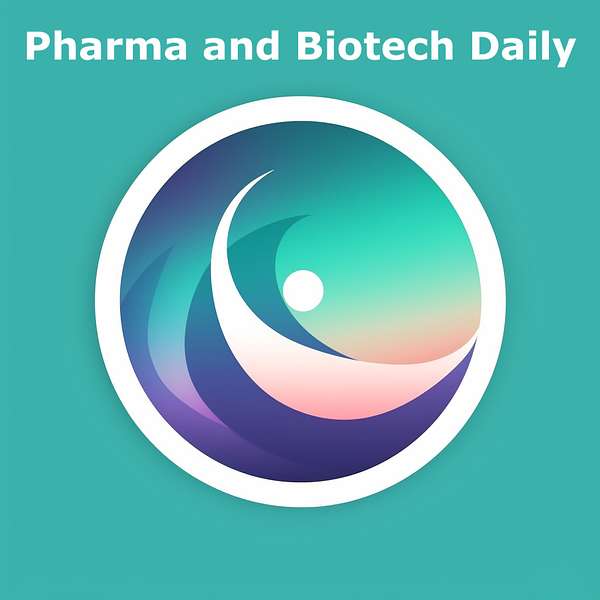
Pharma and BioTech Daily
Pharma & Biotech Daily is a short, AI-generated, human-supervised briefing on what’s important in pharma and biotech.
Each weekday we condense key news on pipelines, deals, regulation and strategy into a quick audio update for people who build, run and invest in life sciences.
Produced by OWITH.ai, a boutique AI & data studio.
Sponsor the show: https://sponsor.owith.ai
Pharma and BioTech Daily
Gene Therapy Breakthroughs and Regulatory Shifts
•
Pharma Daily
•
Season 1
•
Episode 562
Good morning from Pharma Daily: the podcast that brings you the most important developments in the pharmaceutical and biotech world. Today, we're diving into a landscape rich with scientific innovation, regulatory scrutiny, and strategic business decisions shaping the future of healthcare.Let's begin with Novartis, which has achieved a significant milestone by securing FDA approval for Itvisma. This is an intrathecal formulation of its gene therapy Zolgensma, designed to treat older patients with spinal muscular atrophy (SMA). Priced at $2.59 million, this approval is a critical advancement in gene therapy for SMA, broadening the treatment horizon for a wider patient demographic. Gene therapies are increasingly crucial in addressing rare genetic disorders, offering transformative potential in patient care. Novartis's SMA market expansion post-FDA approval of Itvisma not only enhances its SMA portfolio but also signifies growing acceptance towards gene therapies as viable treatment options for genetic disorders. Meanwhile, Novartis is strategically restructuring, planning to cut 550 jobs at a Swiss plant by 2027 while expanding its workforce in North Carolina. This move reflects broader industry trends toward optimizing global operations and investing in regions with strategic manufacturing capabilities.In the sphere of regulatory scrutiny, lawmakers are questioning the FDA's National Priority Voucher Program amid concerns about corruption and expedited reviews. This situation highlights ongoing challenges within regulatory frameworks to balance innovation speed with rigorous safety assessments. An investigation into the FDA’s new priority review voucher program has been initiated due to concerns over corruption and expedited review processes potentially compromising drug safety. This inquiry could influence future regulatory frameworks and underscores balancing accelerated drug approvals with rigorous safety standards. Richard Pazdur expressed concerns about expedited drug approval programs' safety and legality as he takes on his new role as director of the FDA’s Center for Drug Evaluation and Research. These initiatives aim to accelerate drug reviews but spark debate over patient safety implications—underscoring an ongoing tension between innovation speed and regulatory diligence.Turning to Novo Nordisk, their expansion of the Amycretin program demonstrates a commitment to tackling chronic conditions like diabetes. Following promising Phase 2 data showcasing dual agonist capabilities, Novo Nordisk is advancing pivotal trials focused on obesity. This strategic pivot aligns with market needs and scientific discoveries that could significantly enhance diabetes management options. Further emphasizing Novo Nordisk's commitment to diabetes management, their expansion of the amycretin program after promising Phase 2 results demonstrates the efficacy of a dual agonist originally focused on obesity. This underscores a trend toward multifunctional biologics addressing metabolic disorders by targeting multiple pathways—indicative of broader industry shifts towards integrated therapeutic approaches. Novo Nordisk's recent mid-stage clinical trial results for Amycretin—a weight loss treatment—are noteworthy as they demonstrated sustained efficacy over 36 weeks in type 2 diabetes patients without a plateau in weight loss. Analysts highlight its potential as a superior therapeutic option in the burgeoning weight loss market due to its durable solution for weight management.On a contrasting note, SK Life Science encounters regulatory hurdles as the FDA scrutinizes advertising practices related to its antiseizure medication Xcopri. This scenario underscores the complex interplay between marketing strategies and regulatory compliance within the pharmaceutic